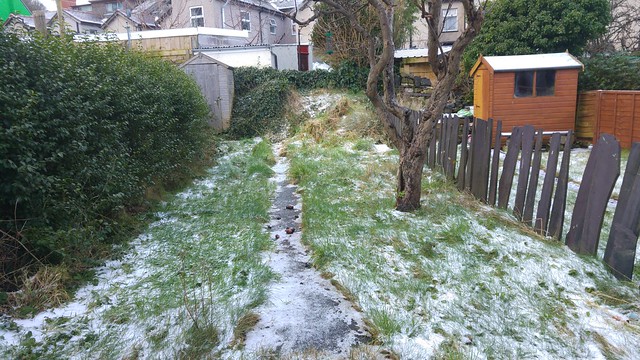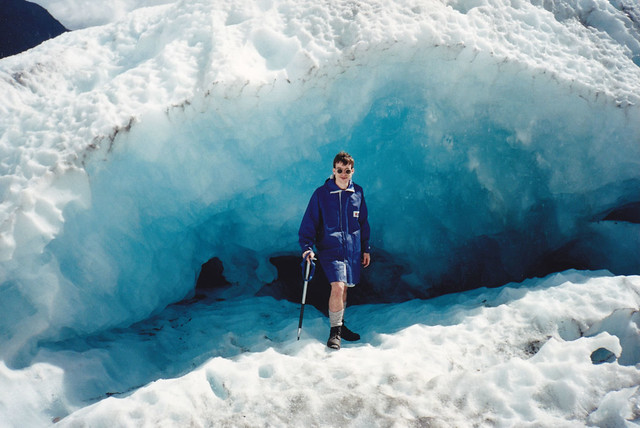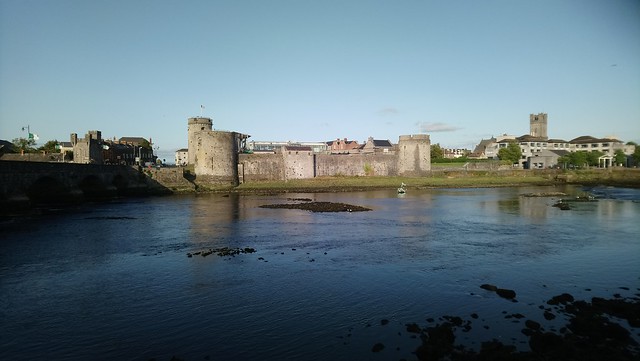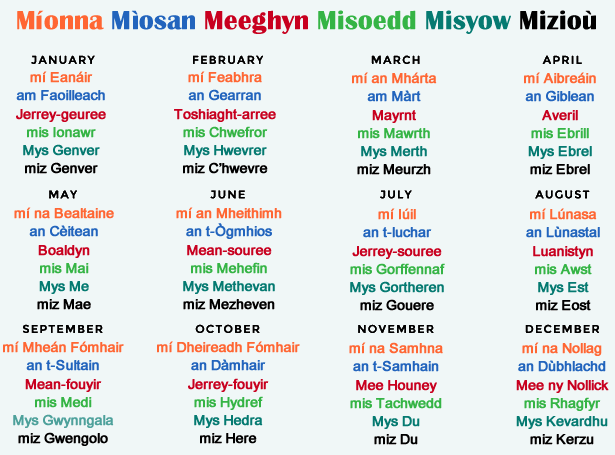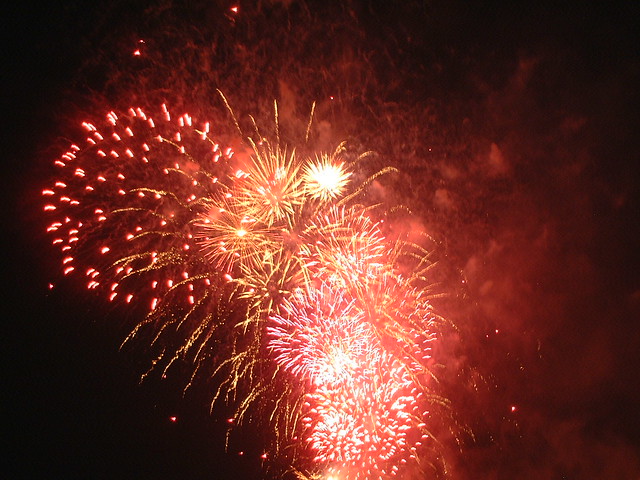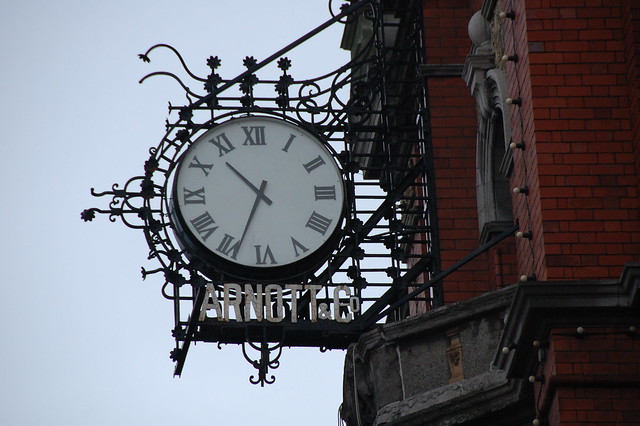Words for water and related words in Celtic languages.
Words marked with a * are reconstructions.
| Proto-Celtic | *dubros = water, dark *dubrokū = otter (“water dog”) *dubro-jarā = water-hen |
|---|---|
| Gaulish | Dubra, Uerno-dubrum = names of rivers |
| Old Irish (Goídelc) | dobur [ˈdovur] = water, river doburchú [ˈdovurˌxuː] = otter (“water dog”) |
| Middle Irish (Gaoidhealg) | dobrán = water |
| Irish (Gaeilge) | dobhar = water; flood, torrent; darkness, dullness, obscurity dobhartha = watery, wet; dull, gloomy. dobharchú = otter (“water dog”) dobharchlog = water clock dobhardhroim = watershed dobhareach = hippopotamus dobharlí = water-colour dobhrán = otter; dull-witted, stupid, person |
| Scottish Gaelic (Gàidhlig) | dobhar [do.ər] = water (archaic) dobhar-chù [do.ərxu] = otter, beaver (“water dog”) dobhar-lus [r̪ˠɔːhdəx] = (water)cress dòbhran [dɔːran] = otter |
| Manx (Gaelg) | dooarchoo = otter, beaver (“water dog”) doour = reservoir, dam |
| Proto-Brythonic | *duβr = water *düβrgi = otter |
| Middle Welsh (Kymraec) | dwfyr [ˈduvər] = water |
| Welsh (Cymraeg) | dŵr [duːr], dwfr [dʊvr] = water; urine; pus dyfrgi, dwrgi = otter (“water dog”) dyfrgiad = watering, irrigation, urination dyfrio, dyfru = to water, to irrigate, to run, to urinate dyfrig = dripping, foaming (of a horse) dyfraidd = aqueous, waterish, aquatic |
| Cornish (Kernewek) | dowr [doʊɹ] = water; river dowrgi = otter (“water dog”) dowra = to water dowrhe = to irrigate dowrvagh = hippopotamus dowrliw = water-colour |
| Middle Breton | dour = water |
| Breton (Brezhoneg) | dour [ˈduːr] = water; rain, tears, sweat, saliva dourgi = otter (“water dog”) douraerouant = hydra dourliv, dourlivadur = water-colour dournijerez = seaplane, flying boat, hydroplane |
Etymology: from the Proto-Indo-European *dʰubrós (dark) from *dʰewb- (deep). The River Douro in Portugual, which is called the Duero in Spain, gets its names from the same Proto-Celtic root, via the Latin Dūrius. The River Dubra in Galicia in the northwest of Spain also gets its name from Proto-Celtic *dubros, as does the English town Dover, and French towns such as Douvres-la-Délivrande in the department of Calvados in Normandy, and Douvres in the department of Ain in the Auvergne-Rhône-Alpes region [source].
Words from the same PIE roots include deep, dip, dope and possibly abyss in English, dubra (puddle) in Latvian, debra (gorge, ravine) in Slovak, debrza (dell, dingle) in Polish, and döpa (to baptize, name, christen) in Swedish [source].
| Proto-Celtic | *udenskyos = water |
|---|---|
| Old Irish (Goídelc) | uisce [ˈusʲkʲe] = water |
| Irish (Gaeilge) | uisce [ˈɪʃk̟ɪ] = water; rain, tears, saliva uisceadán = aquarium uiscebhealach = waterway uiscedhath = watercolour uiscedhíonach = waterproof uisce-obach = watertight uiscerian = aqueduct uiscigh = to water, irrigate uisciú = irrigation uisce beatha = (Irish) whiskey |
| Scottish Gaelic (Gàidhlig) | uisge [ɯʃgʲə] = water; rain; river (in place names) uisgeadan [ɯʃgʲədan] = aquarium; body of water uisge-dhath, dath-uisge = watercolour uisge-dhìonach = waterproof, impervious; watertight uisgrian = aqueduct fuar-uisge = cold rain, cold water slighe-uisge = waterway uisgich [ɯʃgʲɪç] = to water, irrigate uisgeachadh [ɯʃgʲəxəɣ] = watering, irrigation uisge-beatha = (Scottish) whisky |
| Manx (Gaelg) | ushtey [ˈuʃtʲə] = water ushteydane = aquarium bollagh ushtey, coorse ushtey, raad ushtey = waterway ammyr ushtey, droghad ushtey = aqueduct ushtaghey = to water, irrigate, steep, watering irrigation ushtey bea = whisk(e)y |
Etymology from the Proto-Indo-European *udén, from *wódr̥ (water). The English word whiskey comes from Irish uisce beatha (whiskey), and whisky comes from Scottish Gaelic uisge-beatha (whisky): the former is used in Ireland, England and the USA, while the latter is used in Scotland, Canada and Australia [source].
Words from the same PIE root include water, undulation, inundation and vodka in English, Wasser (water) in German, onda (wave) in Spanish, vanduõ (water, current, flow) in Lithuanian, and woda (water, flood) in Polish [source].
| Proto-Celtic | *sālos = saltwater *saleinos = salt |
|---|---|
| Old Irish (Goídelc) | sál [saːl], sáile [ˈsaːlʲe] = salt water, brine, seawater; sea, ocean (poetic) |
| Middle Irish (Gaoidhealg) | sál, sal, sāil = the sea, ocean, seawater, brine |
| Irish (Gaeilge) | sáile [ˈsˠɑːlʲə] = sea water, sea, salt water, brine loch sáile = sea-water loch, lagoon thar sáile = overseas |
| Scottish Gaelic (Gàidhlig) | sàl, sàile = the sea, sea water, salt water |
| Manx (Gaelg) | sailley = salt water |
| Proto-Brythonic | *salī = salt, sea water |
| Middle Welsh (Kymraec) | hely, heli = brine, salt water, pickle, sea-water, sea |
| Welsh (Cymraeg) | hâl [haːl] = salt, salty, saline, akaline heli = brine, salt water, pickle, sea-water, sea helïad = a salting, seasoning helïo = to salt, preserve, pickle, season helïaidd = salty, briny, saline, brackish |
| Middle Cornish (Cernewec) | hyly = brine, salt water, sea water |
| Cornish (Kernewek) | hyli = salt water |
| Middle Breton (Brezonec) | hili, hyli = brine |
| Breton (Brezhoneg) | hal = salt water, salt hili = brine, strong sauce |
Etymology from the Proto-Indo-European *séh₂ls (salt) [source]. Words from the same PIE root include salt, saline (containing salt, salty) and salad in English, sel (salt) in French, sal (salt) in Spanish, sůl (salt) in Czech, and suola (salt) in Finnish [source].
| Scottish Gaelic (Gàidhlig) | bùrn [buːr̪ˠn̪ˠ] = (fresh) water, amount of water, (act of) raining bùrn-éirigh = spring water bùrn-iarainn = mineral water bùrn mìn = fine drizzle |
|---|
Etymology from the Scots burn (a small river), from the Middle English bourne (small stream), from the Old English burne, burna (spring, fountain), from Proto-Germanic *brunnô (stream, brook). the Proto-Indo-European *bʰrun- (a bubbling forth; a fountain, wellspring, source) [source].

Sources: Wiktionary, Etymological Dictionary Of Proto Celtic, In Dúil Bélrai English – Old Irish glossary, eDIL – Electronic Dictionary of the Irish Language, Teanglann.ie, Am Faclair Beag, An etymological dictionary of the Gaelic language, Fockleyreen: Manx – English Dictionary, Online Manx Dictionary, Gaelg Corpus, Geiriadur Prifysgol Cymru, Lexicon cornu-britannicum : a dictionary of the ancient Celtic language of Cornwall, Gerlyver Kernewek, Devri : Le dictionaire diachronique du breton, Dictionaire Favereau, TermOfis



